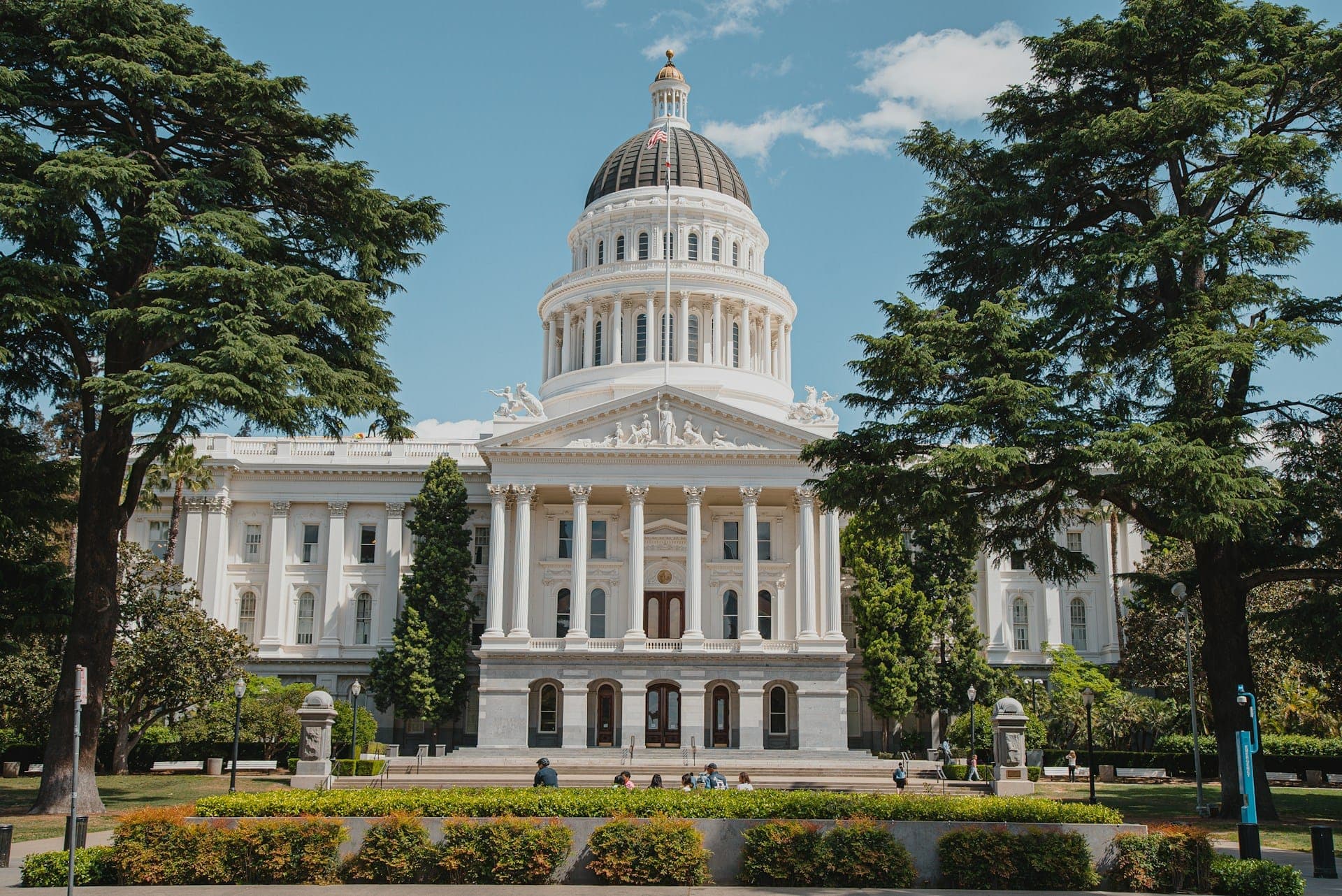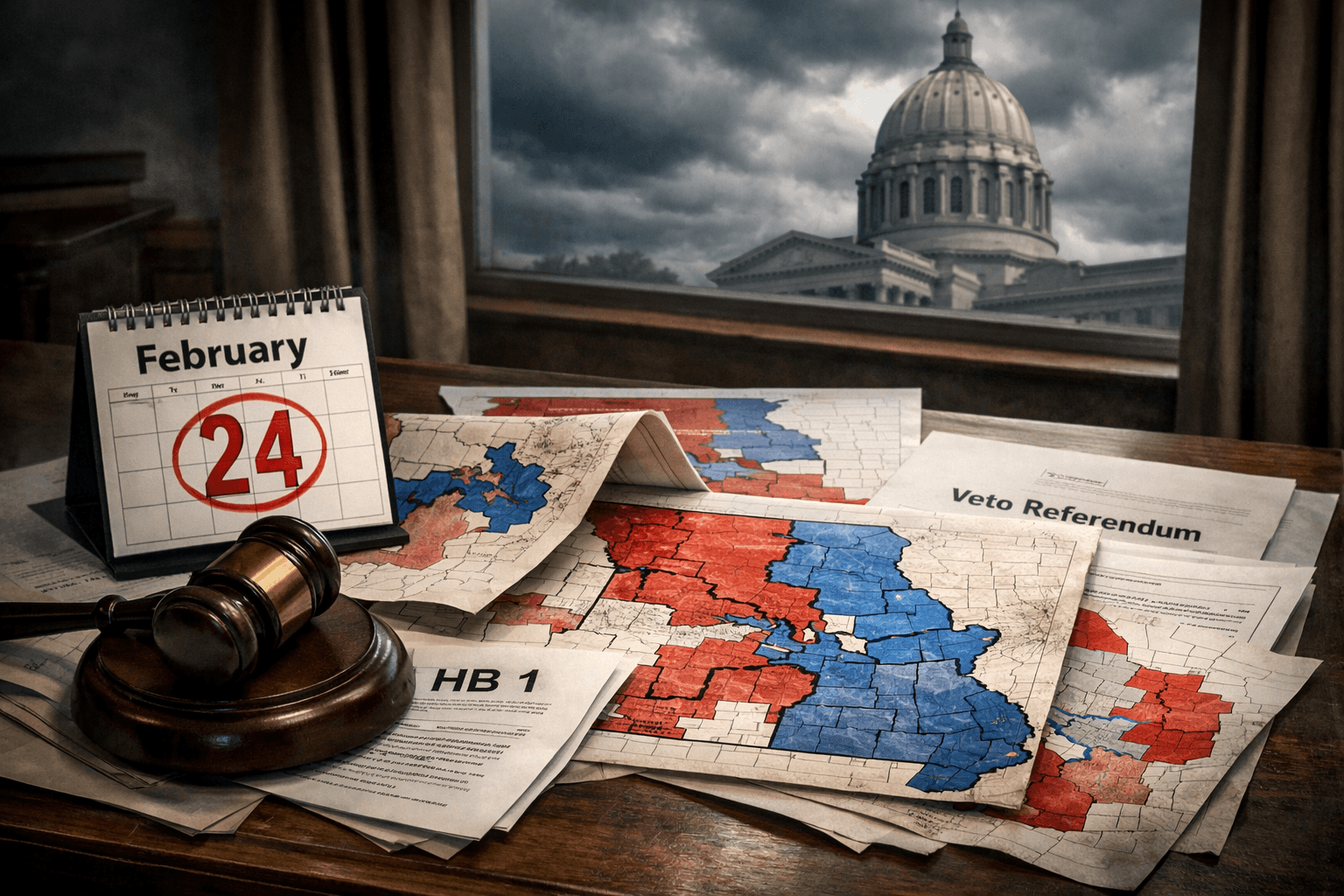California Legislative Counsel Refuses to Provide Republican Member Legal Services

SACRAMENTO, Calif. - On August 12, Republican California Assemblymember Carl DeMaio (San Diego) sent a letter to the Director of California's Legislative Counsel, Cara Jenkins, requesting a legal opinion on what he calls an “unconstitutional effort for mid-cycle redistricting.”
According to KCRA, Jenkins has refused any press inquiries into the letter, citing confidentiality requirements. However, DeMaio says this goes beyond attorney-client privilege as he – at least so far – has been denied legal services on the matter.
He now says Jenkins is “unfit for office,” and has called out Newsom and the Democratic majority in the legislature for their lack of transparency in their effort to counter Texas mid-cycle redistricting – which he says he also opposes.
“Two wrongs don’t make a right,” he remarked. State lawmakers are expected to vote on a new congressional map to put on the California ballot next week, even as polls show Californians overwhelmingly support independent redistricting.

DeMaio Lays Out 4 Ways Newsom and the Legislature Are Violating State Law
In his letter to Jenkins, DeMaio says “existing rules and procedures in the state legislature give you the ability to warn legislative leaders when they attempt to engage in conduct outside the law and in violation of the state constitution.”
Read the full letter here.
The Office of Legislative Counsel confirms this on its website when it says its mission is to “support the California Legislature by providing responsive nonpartisan legal and technology expertise,” which extends to providing legal advice on legislative actions.
DeMaio wanted Jenkins to respond to a simple question: Does applicable state law even allow Newsom and the California Legislature to engage in mid-cycle redistricting? He laid out 4 specific violations to the state constitution that he wanted addressed.
He asserts that the California Constitution:
- Does not allow mid-cycle redistricting
- Does not allow legislative involvement in redistricting
- Does not allow partisan gerrymandering
- Requires a citizen initiative to change current redistricting rules
His case centers on Article XXI - Section 2. Item (g) of this provision states:
By August 15 in 2011, and in each year ending in the number one thereafter, the commission shall approve four final maps that separately set forth the district boundary lines for the congressional, Senatorial, Assembly, and State Board of Equalization districts.” Upon approval, the commission shall certify the four final maps for the Secretary of State.”
DeMaio says any new district maps before the next year that ends in “1,” which would be 2031, are not permitted by the state constitution. And, Article 21 does not add any exceptions or addendums that allow legislative intervention.
“Any proposal that references maps created by state politicians is an illegitimate circumvention of these provisions – and both the Governor and state legislature lack the authority to proceed at this time,” DeMaio writes.
He also notes that the current mid-cycle plan is motivated by partisanship.
Newsom has repeatedly said that a new congressional map should be drawn to counter Texas’ move to take 5 seats from Democrats. He has called it a “trigger” response. To balance it out, he wants to create 5 more safe seats for Democrats.
It is not about what is fair for Californians. It is about “fighting fire with fire.” It is about matching what Newsom sees as unfair partisan maneuvering in Texas, even as he says that independent redistricting should be a national model.
This is explicitly prohibited in Article XXI-Section 2 under item (e), which says, “Districts shall not be drawn for the purpose of favoring or discriminating against an incumbent, political candidate, or political party.”
DeMaio presented a clear case to Jenkins with specific examples of why she should advise state lawmakers on the illegitimacy and illegality of circumventing the state’s independent redistricting commission.
However, instead of refuting or acknowledging any of these points, Jenkins has so far refused to give DeMaio – who is one of her clients in this context – an opinion.
CA Legislative Counsel Claims Confidentiality in Silence
When KCRA asked Jenkins about DeMaio’s letter, she responded that she cannot comment on requests from lawmakers for legal services, citing what essentially amounts to attorney-client confidentiality and privilege.
The Office of Legislative Counsel said:
[W]e maintain an attorney-client relationship with each Member of the Legislature and the Governor, which requires confidentiality related to the work that we perform (see Gov. Code Secs. 10207 & 10208). Additionally, our office is not authorized to provide general legal advice or interpretations of law to members of the public.”
But according to DeMaio, Jenkins hasn’t just denied the press a response – she has refused to provide him the legal services her office says it can’t discuss in public.
“Talk about lack of transparency,” he said on his podcast. He also said it wasn’t true that her office could not disclose the information he requested. “At any time, the Democrats can authorize this leg counsel to release anything publicly.”
“I’ve asked for a legal opinion. I am a member of the legislature. I can release the memo. She’s not going to give me a memo. I don’t expect a response.” DeMaio added that Jenkins is “unfit for office,” accusing her of putting partisanship above her nonpartisan duties.
Will Lawmakers Listen to Voters?
Whether or not the Office of Legislative Counsel responds directly to DeMaio remains to be seen. However, there is a matter of urgency that concerns California voters as state lawmakers are set to unveil new maps by the end of the week.
And then vote on putting the maps before voters next week.
The effort may be DOA already as new polling data shows voters overwhelmingly support keeping independent maps and oppose legislative redistricting. The survey found that voters overall support independent redistricting by a margin of 2-to-1.
For independent voters, specifically, the margin for those who oppose Newsom’s plan is nearly 3-to-1.
A coalition of influential figures in state politics has emerged to oppose the redistricting effort should lawmakers approve a special election, including former Gov. Arnold Schwarzenegger, billionaire election reform advocate Charles Munger Jr, and the League of Women Voters.
DeMaio is also calling on voters to oppose Newsom’s plan
 Shawn Griffiths
Shawn Griffiths







